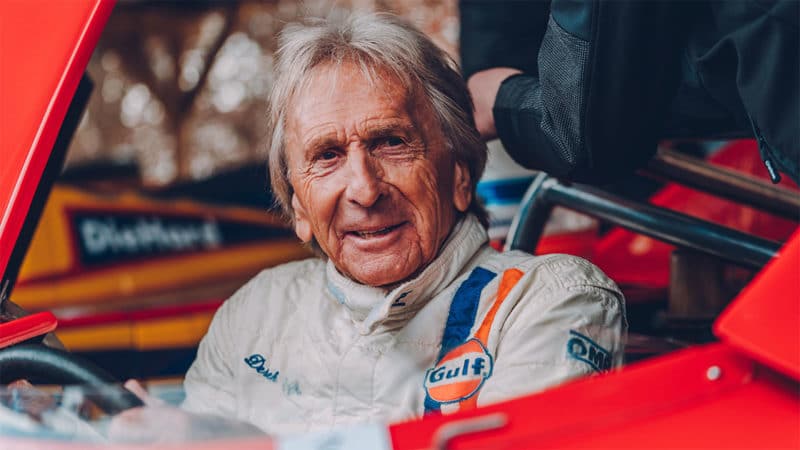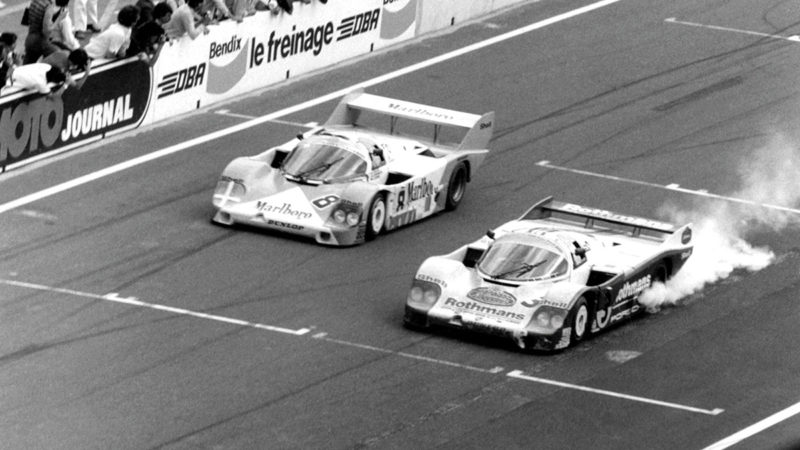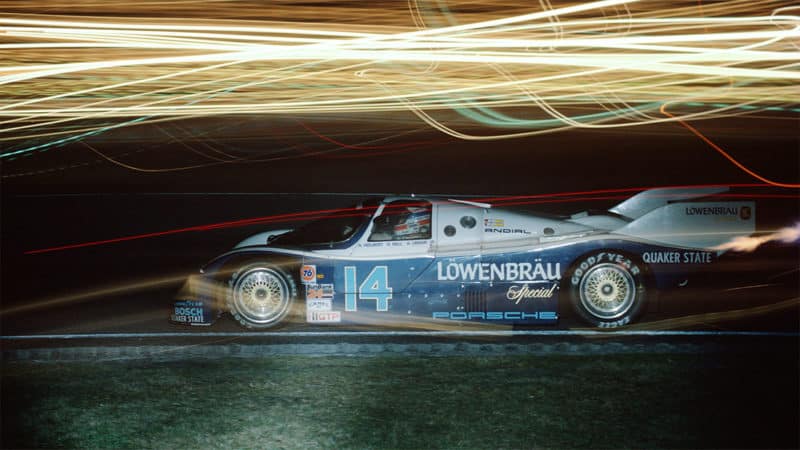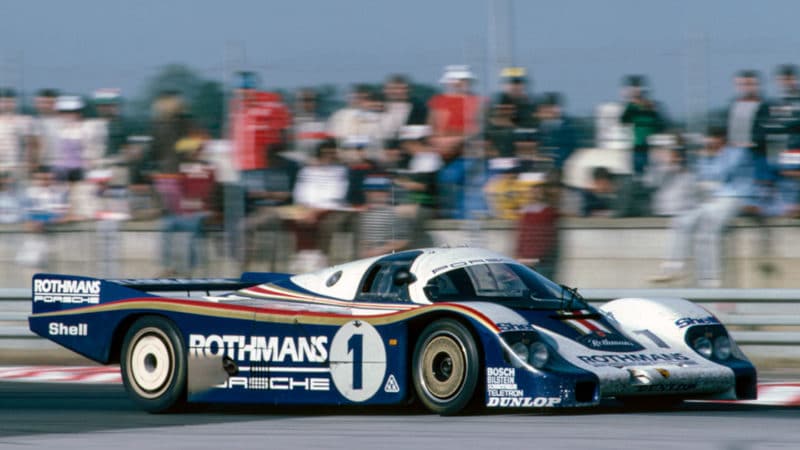“I never looked at it and thought ‘Shit, it’s all bloody Porsches’. But if I had been in a Jag I might have done, I suppose. But they came in with three or four works cars and probably could have had more. Then again, teams would have had to deal with Tom Walkinshaw…”
That was the point about Porsche. It wasn’t just about the works Rothmans cars. The vast array of customers who bought 956s and 962s not only sourced their own colourful commercial sponsorship – liveries are a key element of the Group C mystique – they were also free to develop the cars independently of the factory. “Porsche gave an opportunity for everyone to buy a car and go and win races,” as Derek puts it.
A conversation with Bell is always a pleasure, especially as you never quite know which direction it’ll take, given the length and breadth of his remarkable career. He describes his 1970s as “a mess”, given how his F1 ambitions ran out of steam. And having tasted life as a Porsche works driver in 1971, in the final year of the revered 917 as a contender on the world stage, he jumped about from car to manufacturer: John Wyer’s Gulf Mirages in which he claimed the first of his five Le Mans wins in 1975; the corresponding season helping Alfa Romeo to a World Championship of Makes title; the Jaguar XJ12C European Touring Car Championship campaign – “a high profile disaster and quite amusing”; and even becoming the token non-Frenchman in the Renault-Alpine A442.
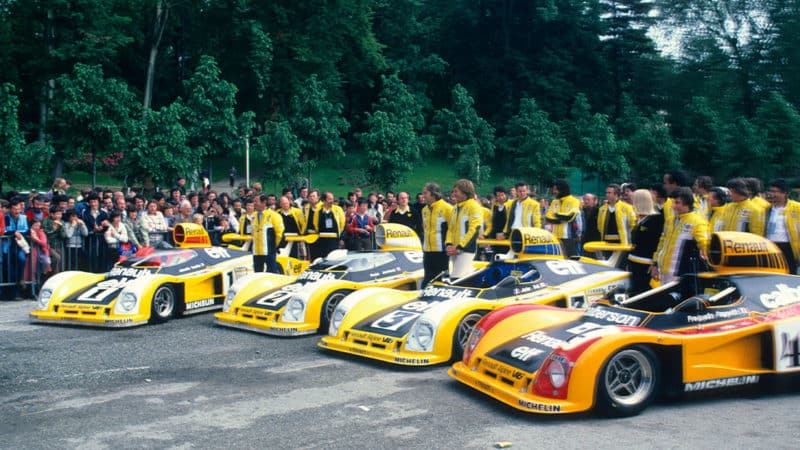
Bell was “token non-French driver” at Alpine-Renault
Between it all there were one-offs and cameos to create what in hindsight was a wonderful patchwork career, but at the time hardly offered the job security and continuity any of us naturally strive for in life.
As he readily admits, Group C gave Bell a second wind at a time when he thought his professional career was drawing to a close. But it wasn’t just about the World Sportscar Championship, in which he claimed back-to-back titles in 1985-86. IMSA also offered a welcome land of opportunity, especially once Derek found a kindred spirit in Al Holbert, whom he first met during a brief return to the Porsche fold pre-956, in 1980.
